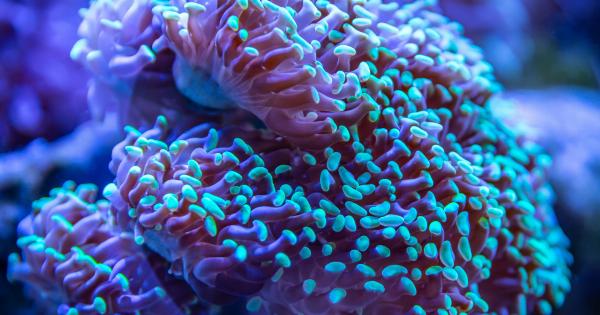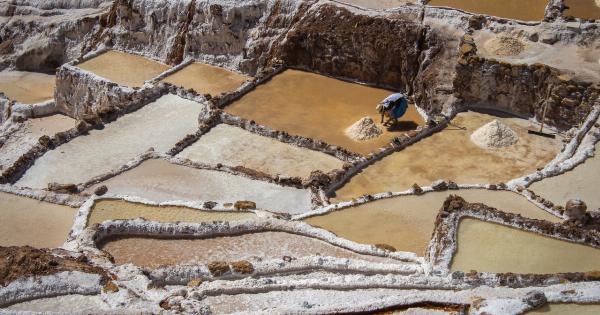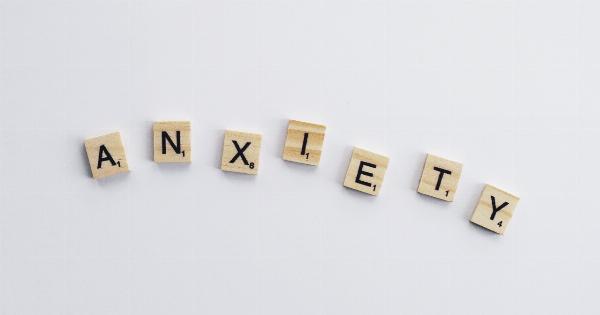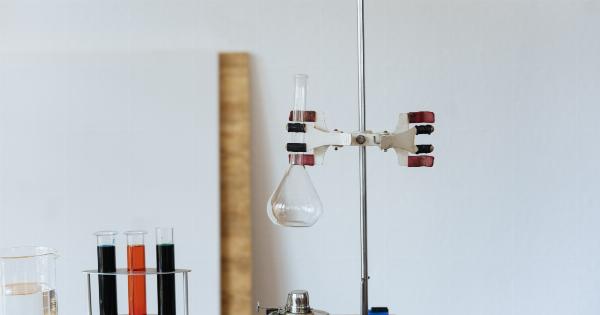Salt is an essential mineral that is needed by the body in small amounts to function properly. It is known to enhance the flavor of food and has been used for centuries as a preservative.
However, consuming too much salt can have negative effects on your health. High sodium intake has been linked to an increased risk of hypertension, heart disease, and stroke. The American Heart Association recommends limiting sodium intake to no more than 2,300 milligrams per day for most adults.
But how do you know if your body is craving less salt? Here are some signs to look out for:.
1. Frequent Thirst
If you find yourself constantly reaching for a glass of water or feeling thirsty even after drinking, it could be a sign that your body is craving less salt.
Excessive sodium intake can lead to dehydration as your body tries to maintain a balance of fluids.
2. Bloating
Consuming too much salt can cause water retention in your body, leading to bloating and puffiness. If you often wake up with a swollen face or notice your fingers feeling tight, it might be a sign that your body needs less salt.
3. High Blood Pressure
Salt is known to raise blood pressure in individuals who are sensitive to it. If you have consistently high blood pressure, it could be a sign that your body is craving less salt.
Lowering your sodium intake may help to regulate your blood pressure levels.
4. Kidney Stones
An excessive amount of salt in your diet can increase the risk of kidney stone formation. If you have a history of kidney stones or frequently experience pain in your lower back or sides, it might be worth considering reducing your salt intake.
5. Persistent Headaches
Excess salt intake can lead to dehydration and electrolyte imbalances, which can trigger headaches. If you frequently suffer from persistent headaches, it might be worth evaluating your salt consumption.
6. Increased Sensitivity to Salt
If you find that you are more sensitive to the taste of salt than before, it could be a sign that your body is craving less salt. Your taste buds can adapt to lower salt levels over time, making highly salted foods taste overpowering or unpleasant.
7. Cravings for Sweet or Sour Foods
When your body is craving less salt, it may compensate by craving other flavors like sweet or sour. If you find yourself frequently craving sugary or acidic foods, it could be a sign that your body is trying to rebalance its taste preferences.
8. Feeling Fatigued
An excessive intake of salt can have a dehydrating effect on the body, leading to fatigue and lethargy. If you frequently feel tired despite getting enough sleep, it might be worth examining your salt consumption.
9. Swollen Feet or Ankles
Excess salt intake can cause water retention in your body, resulting in swollen feet or ankles. If you notice persistent swelling in these areas, it could be a sign that your body needs less salt.
10. Increased Risk of Osteoporosis
Consuming excessive amounts of salt can cause your body to excrete higher amounts of calcium through urine. Over time, this may lead to a depletion of calcium in your bones and increase the risk of osteoporosis.
If you have concerns about your bone health, considering reducing your salt intake may be beneficial.
In Conclusion
It’s important to pay attention to your body’s signals when it comes to salt cravings.
While some individuals may have a naturally higher preference for salty foods, it’s essential to maintain a balanced and moderate salt intake for optimal health. If you notice any of the above signs, it might be worth considering reducing your salt consumption and consulting with a healthcare professional for personalized advice.




























